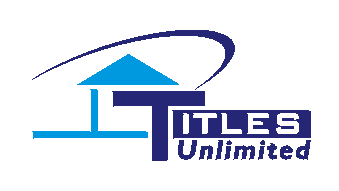What is Title?
It is the ownership of a piece of property, meaning the right to exclude others, occupy and possess it, and sell it.
What is Title Insurance?
It is a contract purchased by an owner, called an owner's policy, to guarantee good title; a contract purchased by a mortgage lender is called a mortgagee policy, and guarantees the mortgage is a lien on the property. The policy pays for costs to remove clouds and defects caused by forgery, fraud, lawsuits, unrecorded easements, and missing heirs.
What is a Lien?
It is a right to sell a piece of property to pay a debt if the debt is unpaid or in default. Normally, the debt is from a mortgage, construction work, a judgment, or an IRS lien. A lien has priority to the property based on when it is recorded at the courthouse. If there is more than one lien, the one recorded first is a first lien and the next one recorded is a second lien, etc. A mortgage title policy normally insures that the mortgage is a first lien on a property and therefore entitled to sell the property to pay its mortgage, if unpaid, before any other lien holders can sell the property.
Why do we need a title policy when we refinance our house if we just got one last year when we bought the house?
You need an owner's title policy to guarantee that no new liens have been recorded against the house in the past year (for IRS, judgments, home improvements, second mortgages). You need a new mortgage policy because the new mortgage lender wants to be named as the first lien holder and to have the old mortgagee removed from the title.
What is a Closing?
In a sale of real estate, it is the event when the seller signs a deed of the property and delivers the deed and keys to the buyer in return for the money agreed in the purchase price. Normally, the buyer also signs a mortgage (and note) to a lender to obtain part of the purchase price. A closing for a refinance is where the property owner signs a new mortgage (and note) to a lender to pay off and satisfy the previous mortgage. A "settlement" is a synonym for the word "closing" and is the preferred term in some parts of the United States.
If I am a buyer, should I bring cash, check, or a cashier's check to my closing, or should I wire money? Who do I wire the money to or make the check payable to?
You should bring a cashier's check payable to the closing agent (normally the title company) in the amount of the "Cash to Close" figure furnished to you by your representative and processor at the title company. A bank wire to the title company is also acceptable and requires you to have the "Wire Instructions" from the title company. Personal checks, except for nominal amounts (under $200.00), are unacceptable at closing because the title company must pay out immediate funds to clear all mortgages and liens off the property, and must pay all broker and recording costs. Personal checks take several days before they become clear funds.
HELPFUL RESOURCES
We can be reached Monday - Friday at 305-447-1107,
or 24 hours a day by email.



